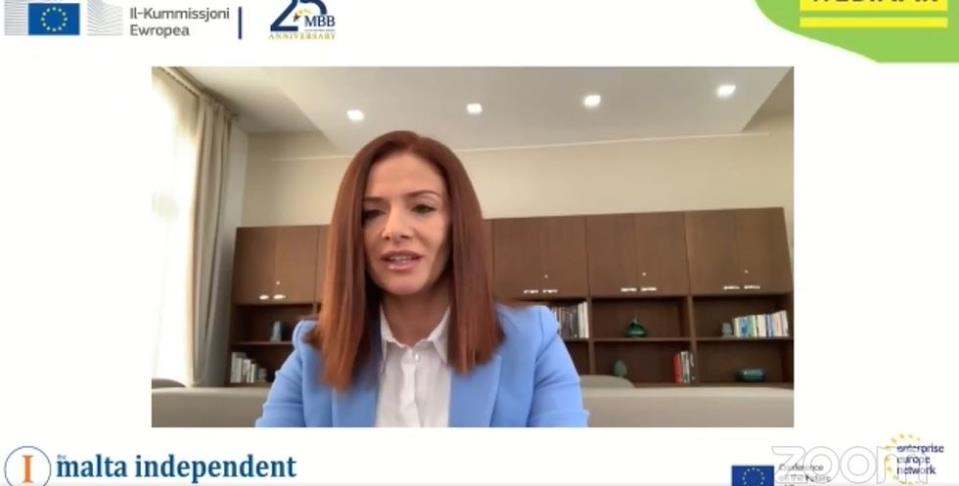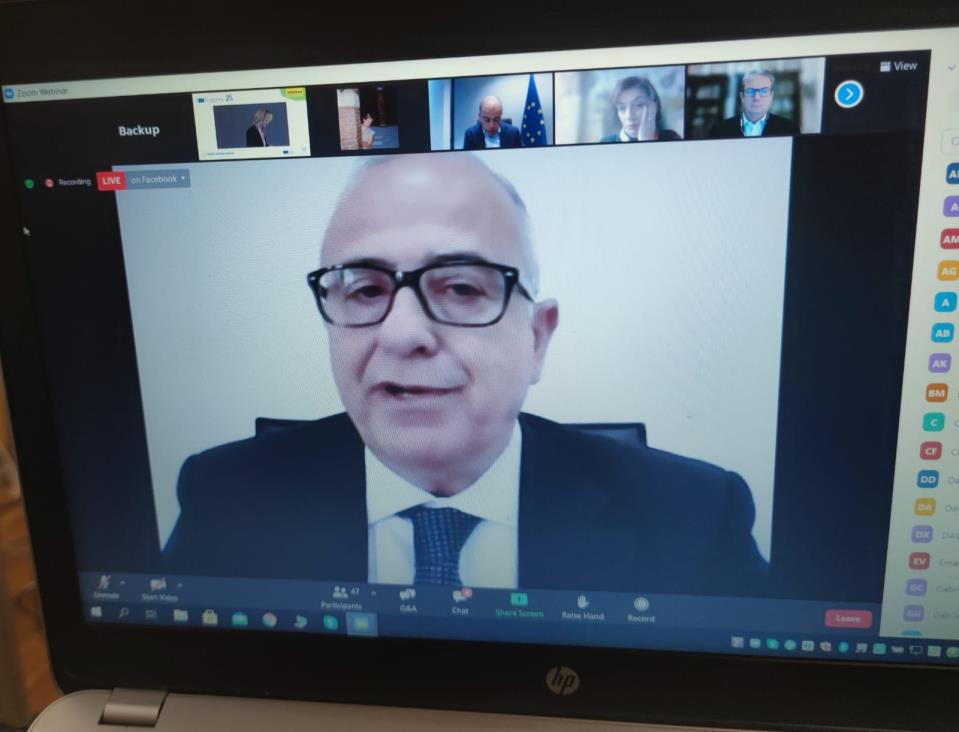The Head of Cabinet of European Commission Executive Vice President Frans Timmermans, Diederik Samsom, has urged Malta to become a beacon for new developments in offshore energy production.
He spoke during a webinar that was organised by the Representation of the European Commission in Malta and the Malta Business Bureau in collaboration with The Malta Independent and the Enterprise Europe Network.
During the seminar, the potential of offshore energy use was one of the topics discussed by the participants.
Patrick Spiteri Staines, the Chairperson of the Malta Chamber's Energy Committee, brought up the possibility of such sea renewable energy, but said that the technology is still developing. "Malta could be a major player in this sector due to its sea area," he said. "This could be a very good source of renewables in the future for us."
Spiteri Staines said that Malta is highly dependent on foreign factors in terms of fuel and energy, which puts the country in a precarious position. "Major hikes in prices and Malta's low amount of renewables would mean that we would feel the pinch. If we manage to attain a higher amount of energy from renewables in the future we will be less susceptible to changes in energy prices in Europe, making us more sustainable."
"To date we depend on imported fossil fuels and the interconnector." He said that Malta's 11.5% target for renewable energy share is "not enough to give us peace of mind."
Among the types of technology available are floating wind and solar units.
"I would add to those subsea turbines which would not create an aesthetic issue or hamper shipping," Spiteri Staines said. "This could be a good source of energy in Malta. The technology is still being developed internationally, so we need to create a platform where people on the cutting edge use Malta as a stepping stone. Malta is a small island but controls a large sea area. The sea is a resource that we don't really tap into."
Simone Borg, Malta's Ambassador for Climate Change and Head of the Environmental & Resources Law Department at the University of Malta agreed about the potential that lies in Malta's maritime areas. She mentioned that the University of Malta has done some research and work in terms of floating solar and wind power.
Diederik Samson, on this issue, spoke about the Innovation Fund, which is one of the world's largest funding programmes for the demonstration of innovative low-carbon technologies. "This is a major part of the Emissions Trading system revenues, collected at EU level and spent towards companies at the front-line of innovation. We discussed the sea as a potential source of energy for Malta - offshore wind, sub-sea energy sources like current and tidal - that is at the front-line of innovation. If I could give the Maltese government and business community specific advice, apply for that Innovation Fund money. Make Malta the beacon of new developments in terms of offshore energy production and create that new future in which you are less reliant on mainland Europe and foreign fuel suppliers for your energy sources. The funds are available, it's time we start using them."

Head of the European Commission Representation in Malta Elena Grech spoke about the EU Commission's ambition is to achieve carbon neutrality by 2050. She said that the EU Commission has been busy with legislation to limit damage to the climate. Grech said that the Commission is proposing that, by 2030, carbon emissions are reduced by 55%. "That is a tall order, but the Fit for 55 package is a legislative one which redrafts, rehashes existing legislation. There are also proposals for new legislation." The package aims to be socially fair, she said, adding that the burdens on countries are different depending on the level of their advancement in the field.
One issue touched upon was the transport sector.
Simone Borg stressed the importance of the mobility shift to reduce vehicle emissions, towards alternative modes of transport and electric vehicles. The current use of cars "does not permit us at this point to meet the current energy targets."
Malta's Energy Minister Miriam Dalli spoke in a recorded message and mentioned the issue.
She spoke of Malta pushing heavily towards a switch to electric vehicles and cleaner modes of transport. The minister spoke of Malta's charging infrastructure to support the shift towards greener mobility. "With a €3 million investment by 2021, 260 new charging points will be installed. By the end of the year we are planning a total number of 362 charging points. Over the next three years, the country will have an additional 1,200 charging points."

Malta Business Bureau CEO Joe Tanti spoke of action on climate change becoming more urgent each year. "The threat is concerning for countries like Malta which not only suffer from insularity, but contends with the difficulties of operating on the EU periphery."
"Tourism is a key part of Malta's economy. Our tourism product is dependent on favourable weather conditions, which is further compounded by the fact that to reach Malta, one must travel by sea or air. Weather changes could impact Maltese prosperity."
Shipping was brought up. Kevin Borg, CEO of the Malta Maritime Forum, who said that shipping is the most energy efficient mode of transport in terms of tonnes per mile. This is as a container ship is able to transport thousands of tonnes of goods on a single ship. He said that the maritime industry wants green growth, "because the industry itself is a victim of the consequences of climate change. When speaking about sea levels, frequencies of storms etc., these are devastating to the maritime industry so this industry wants to contribute to better climate change initiatives."
Air transport was also brought up.
Nadia Giordimaina, representing Air Malta, spoke about the high costs of sustainable aviation fuel and that such costs will be unlikely to go down. Air Malta, she said, has focused on updating its fleet, which will comprise fully of A320 NEOs by 2023.
Architect David Xuereb also spoke during the event and said that while decarbonisation is seen by many as risky, he sees it as a serious opportunity for businesses.
"If we realise what the endpoint will be early enough, then we can make the changes we need in energy , transport, building that effect decarbonisation at the right time, in the right way and in a cost effective manner."
The webinar was moderated by The Malta Independent's Media Consultant Rachel Attard.